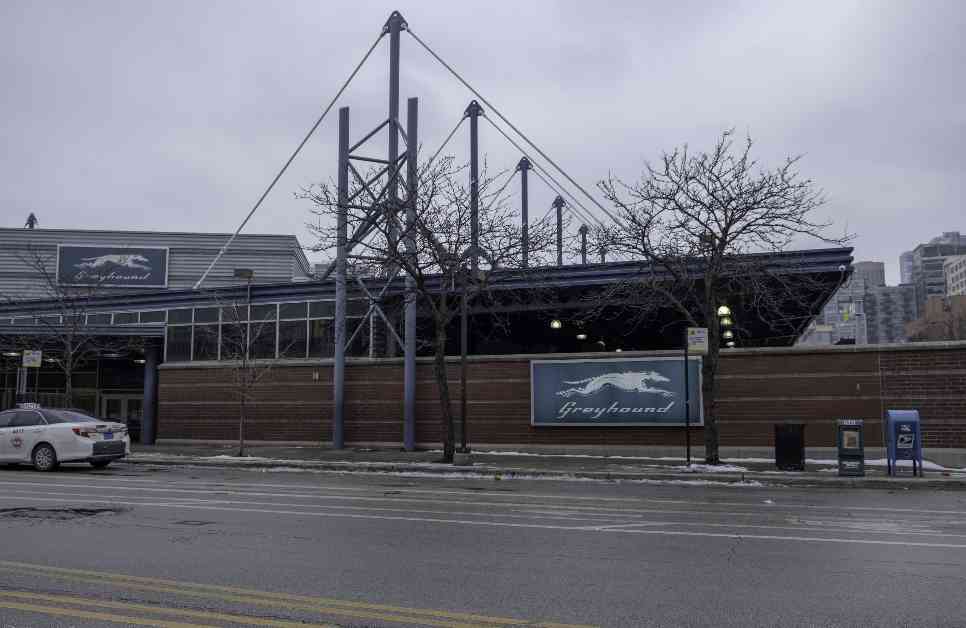Greyhound, a popular intercity bus service, is planning to close its only bus station in Chicago within the next month. This decision is alarming as Chicago would become one of the few major cities in the world without a bus terminal. This closure would leave passengers waiting outside along the curb, which is concerning, especially with winter approaching and the harsh weather conditions it brings.
During a visit to the Greyhound station on Harrison Street, it was evident that many passengers were unaware of the impending closure. This news came as a shock to them, especially to individuals like Joshua, who had already experienced multiple trip cancellations and rescheduling. The lack of a proper indoor waiting area poses a significant challenge for passengers, particularly those with disabilities or service animals.
The closure of the Greyhound station in Chicago raises concerns about accessibility and convenience for passengers who rely on intercity buses for transportation. The station serves as a vital travel option for older people, low-income riders, individuals with disabilities, and those who do not drive. The impact of this closure extends beyond inconvenience; it affects the livelihoods and daily lives of many individuals who depend on this service.
The sentiments shared by passengers at the Greyhound station reflect a sense of frustration and disappointment towards the decision to close the facility. Many passengers feel neglected and unheard by city officials who are responsible for ensuring the well-being of residents. The closure of the station not only disrupts travel plans but also highlights a broader issue of accessibility and support for marginalized communities.
As the city grapples with the impending closure of the Greyhound station, it is essential for policymakers and city officials to consider the needs of all residents, especially those who rely on public transportation for their daily commute. The closure of the station may further exacerbate existing challenges faced by vulnerable populations and limit their access to essential services.
In light of these developments, there is a growing call for action to address the closure of the Greyhound station in Chicago. Advocates and community members are urging city officials to reconsider the decision and explore alternative solutions to ensure the continued operation of the bus terminal. The closure of the station not only impacts individual passengers but also reflects broader systemic issues related to public transportation and accessibility in the city.


